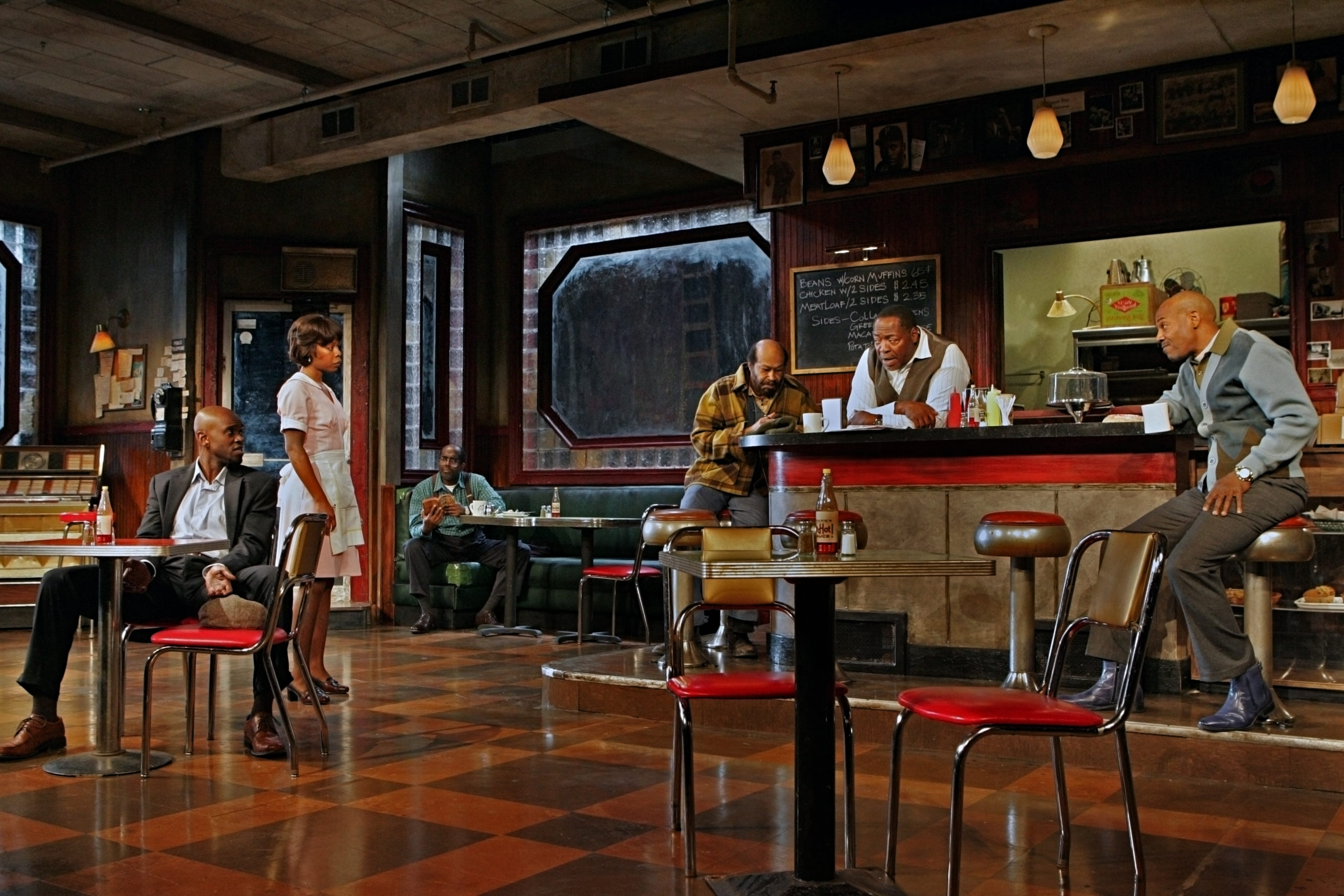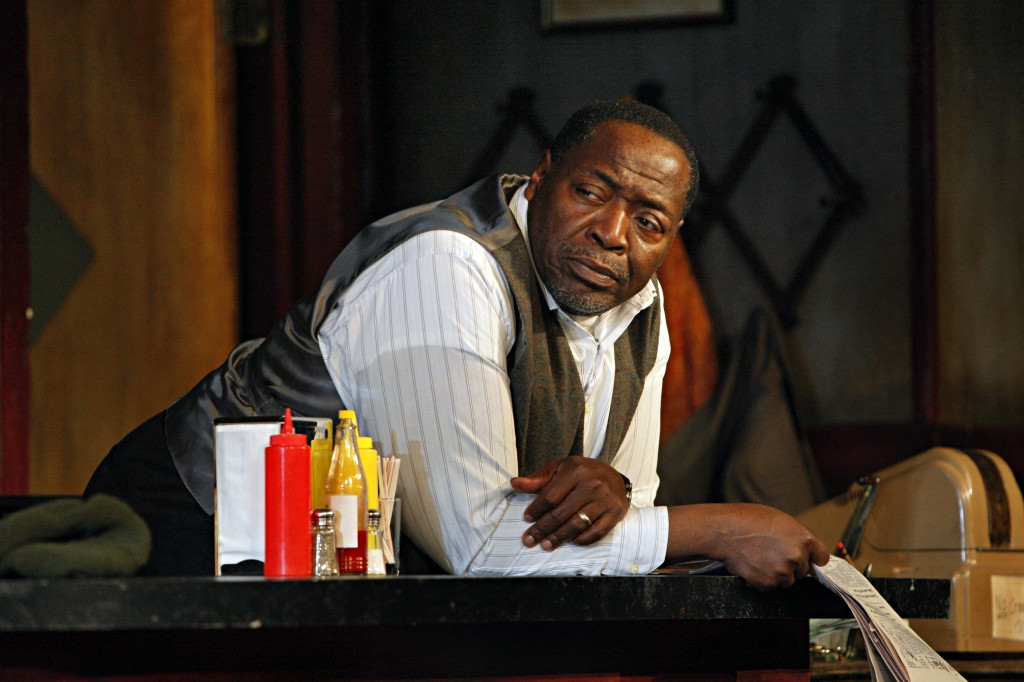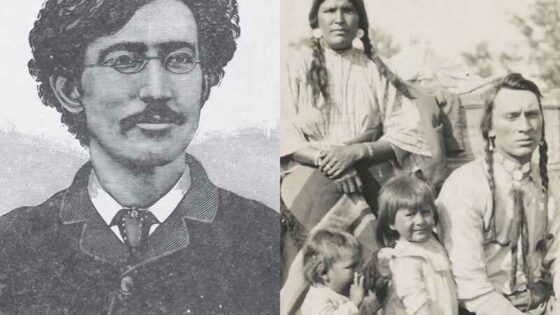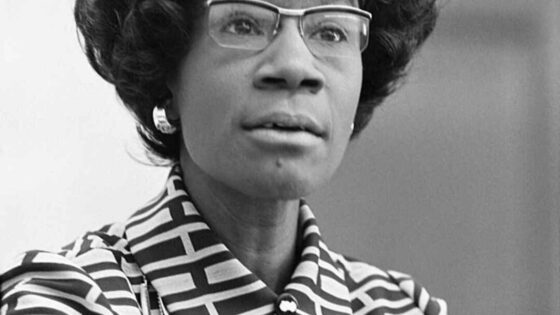Ruben Santiago-Hudson and familiar faces return to the Two River Theater to showcase an award-winning play by August Wilson.
Two Trains Running couldn’t have been a more perfect piece the Two River Theater decided to run as we celebrate Black History Month. The theater brought back a slew of familiar faces including Ruben Santiago-Hudson to direct the award-winning play.
Two Trains Running is the seventh in Wilson’s ten-part Pittsburgh cycle which highlights and celebrates the African-American experience in the 20th century. Throughout the Pittsburgh Cycle, Wilson captures everyday living for African-American men and women, and highlights of history around it.
Set in The Hill District in Pittsburgh, PA in the 1960s, Two Trains Running defines a decade most known as the civil rights era, through powerful individual characters.
The story revolves around Memphis (Chuck Cooper), the owner of a small restaurant, fighting to get a fair price for his building because he’s become a victim of eminent domain. He is adamant about getting $25,000 for his building and will not accept anything less. As the play progresses, you’ll come to realize the restaurant is not just a place to come eat, but a place of solitude for patrons to shield themselves from their daily struggles and harsh realities in the outside world. And for African Americans, it meant the battle for equality and civil rights.
The play begins with restaurant patrons learning about the death of Prophet Samuel, a popular wealthy evangelist. His death is the most talked about in town.
We also hear about Aunt Ester, a mythical figure who is more than 300 years old. She is known for dishing out wisdom from behind the door of her home. More importantly, Aunt Ester is regarded as a revered figure who has helped people get out of situations because of her advice.
Then there’s Hambone. When Hambone makes his first appearance, he yells “I want my Ham”. At first you would think there is something comical about this person as he yells he wants his ham. Or maybe a mentally ill person who might be a filler in the play. But as the play progresses, Hambone will prove to be more than a man yelling for his ham.
Wilson gives the viewers individualistic characters that shape and mold the play.
There is Wolf, played by John Earl Jelks, who is a smooth talking brotha who places bets on the next day lottery numbers – the only way to make income in a racially charged and high unemployment era.
Then there’s Holloway, played by James A. Williams. Holloway sits at the same table, drinks the same coffee, and eats the same toast everyday. He stands out as the voice of reason.
West, played by Harvey Blanks, the town’s wealthy undertaker, tries to convince Memphis to sell his property to him for $20,000 because he insists those “white folks won’t give Memphis anything more”.
The twist in the mix of characters comes with Sterling, played by Owison Odera. Sterling is an energetic, yet passionate young man who was just released from prison for robbing a bank. It is Sterling’s take charge attitude that stirs up the group to take action for change and equality, or at least think about it.
And then there’s Risa, played by Roslyn Ruff. Risa is the object of lust for Wolf and Sterling. She is very guarded, has marks on her legs, and lags around the restaurant. You will later find out the story behind her marks.
Just like Hambone, you too would think something is wrong with her. But Risa actions, as well, will prove to have meaning as she builds a character of independence and power, showing empathy towards Hambone.
In the beginning, it would seem Hambone is nothing but than a mere joke, a crazy person yelling for his ham. “I want my ham, I want my ham” he says. See, Hambone painted a fence and in return he was to receive a ham but instead he got a chicken. Hambone thought his work was warranted for a ham, and so he wanted his ham. The character is going to constantly remind you, you should have that ham. Wilson uses this vivid character, that will ask yourself is something better than nothing? It is Hambone’s determination that drives the message in Two Trains Running. And that is to never give up on what’s right and fair.
In Two Trains Running, August Wilson’s draws up a great history lesson while also highlighting how the average African American lived during these events. Wilson stated “This play does not speak to red-lettered events of the sixties .. because at the time all of this was going on, people were still living their lives. ”
Despite the tumultuous times of Civil Rights, the spirit of Wilson’s character’s keep alive hope, change, and to simply keep on living.
Essentially, the lesson here is there are always two trains running. There is life and there is death. Each of us rides them both. – Wilson
Do not miss this powerful play giving a history lesson you’ll never forget. The play runs until March 3.
For more information, please visit www.trtc.org











